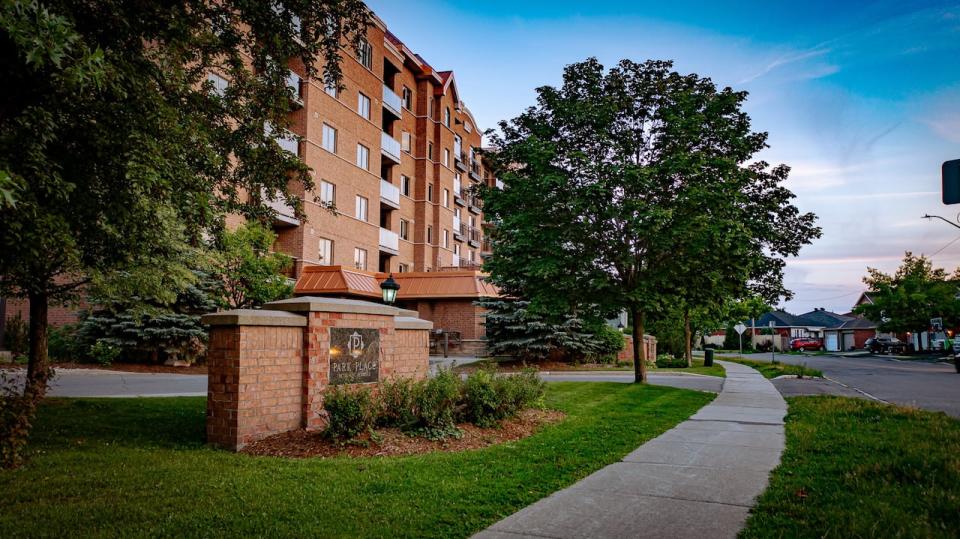'Lured' by discounts, seniors leaving Ottawa retirement homes after steep fee increase
Nearly two dozen seniors say they've had no choice but to leave their Ottawa homes after their landlord unexpectedly asked them to pay hundreds or even thousands of dollars more in monthly fees.
Earlier this year, CBC reported Alavida Lifestyles had begun removing longstanding "marketing discounts" at its four retirement residences in Ottawa despite tenants never being told those discounts were temporary in the first place.
The company offers a range of accommodation from independent living to palliative care.
According to an Ottawa member of provincial parliament, at least 23 seniors have moved out of their Alavida apartments since February because they can't afford the increase in monthly costs.
It's shocking. I mean, it's a lot of money. - Rita Kuiak, former Park Place resident
"It's hell," said Rita Kuiak, who left her unit at the end of May. "I had been hoping to make this my last home, but it's a bit traumatizing and upsetting, resettling everything."
The 85-year-old had been living at the company's Park Place residence for the last five years. She said she'd been promised a $1,500 discount off her monthly rent and service fees, paying just under $3,500 a month.
"They didn't say this is for a few months. There was no end marked on it," said Kuiak.
But as with other tenants, management approached her earlier this year to tell her they would be removing her discount, increasing her costs to approximately $5,000 a month.
"It's shocking. I mean, it's a lot of money," said Kuiak. "Most of us here are living with a pension of some kind, so we can't just say fine, just keep going."

Ernie Jackiw, 89, left his Park Place apartment in April. When he signed his lease two and a half years ago, he was also promised a steep discount, lowering his fees to $3,200 a month.
Earlier this year, Jackiw was told he would need to start paying about $6,300 — nearly double what he'd been paying.
"I felt betrayed. I felt they were very dishonest," he said of Alavida management. "They lured us in with the discount to get us in the door."
Manny DiFilippo, the chief financial officer for Alavida Lifestyles, and the company's CEO David Choo previously told CBC those discounts were "implemented on a case-by-case basis as needed" and "were never intended and are not considered to be permanent in nature."
In a follow-up statement, they wrote that "marketing discounts are a temporary measure to assist the homes when there is a dip in occupancy or during a lease up period."
DiFilippo said inflation forced the company to make a "difficult decision," and while some tenants have chosen to leave, phasing out the discounts has been "well received by many tenants, who have been understanding" about rising costs.

Proposed bill would limit some fees
While it's a move that some residents say feels unethical, it's technically legal.
Rent increases are set by Ontario's Landlord and Tenant Board, but there is no such cap under the Retirement Homes Regulatory Authority (RHRA) dictating how much a landlord can increase service fees, as long as tenants are given three months notice.
"It really is the Wild West with no regulation at all. These companies can do whatever they want," said NDP MPP Chandra Pasma, who has been in touch with Alavida tenants in her riding of Ottawa West–Nepean.
Pasma is currently drafting a private member's bill that would introduce regulations limiting how much companies can increase service costs for tenants at any one time. Companies would also need to provide information justifying any fee increases.
The Ministry of Seniors and Accessibility, which oversees the RHRA, declined CBC's request for comment, instead directing all questions to the regulatory authority itself.
In an emailed statement, the RHRA's manager of public affairs Kurtis Barrett wrote that while the authority acknowledged "this can be a difficult situation for residents," it is only in control of administering and enforcing regulations.
"The Retirement Homes Act and regulations do not prescribe fees or fee limits," he said. "We are independent of government and as such, we do not lead or engage in this legislative process."
In the meantime, other tenants CBC spoke with said they have no intention of paying the increased fees at Alavida Lifestyles, and are instead pursuing legal advice.
"I left behind some people who are fighting the battle, and in a way I kind of feel I've abandoned them," Jackiw said of his former neighbours. "But ... I'm 89 years old. I don't know how many years I have left in front of me.
"I want to live. I don't want to fight."


